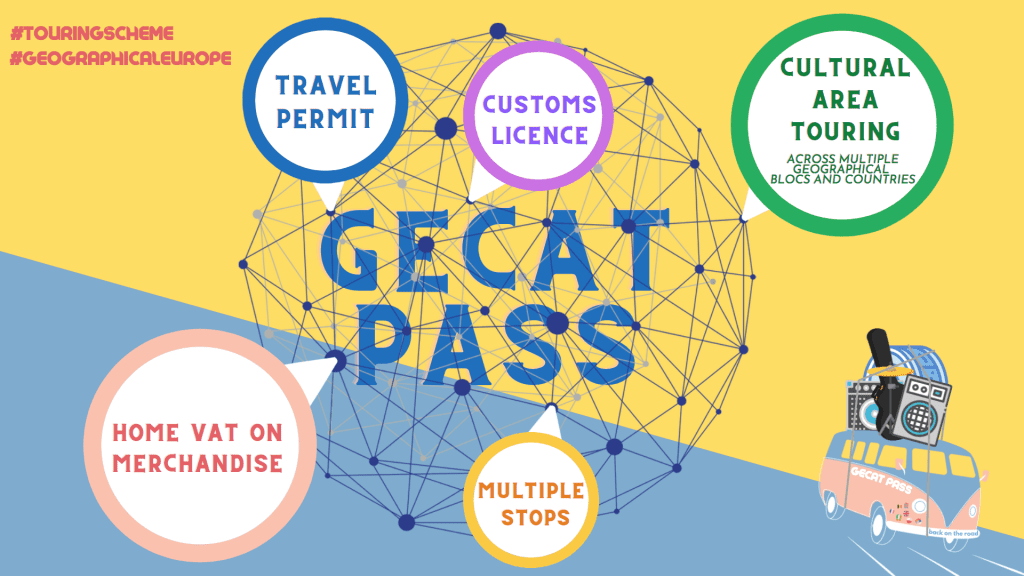Impala and IAO want to get all European artists back on the road and call for a cultural area touring permit across multiple geographic blocs in Europe


Impala (the European organisation for independent music companies and national associations) and IAO (the umbrella association for national organisations representing the rights and interests of Featured Artists in the music industry) have united to get all European artists back on the road.
In a statement they write: “The current touring crisis facing the music sector has to end. Facilitating live shows and touring is our best shot at recovery across the multiple geographical blocs that make up the greater European region. Reducing the costs and administrative burden of current work permit schemes and custom arrangements for cultural touring is key, particularly for grass roots, emerging, and niche artists.”
The organisations propose an approach that involves creating a new cultural area with a single touring permit, instead of treating Europe as a number of distinct blocs and countries. Their reasoning behind this: The music market is geographic and covers all countries and economic/political groupings in the region including EU, EFTA, EU neighbourhood countries, as well as individual countries such as the UK.
Known as the GECAT Pass (for Geographical European Cultural Area Touring), the idea is to get small and medium sized music tours back on the road quickly and efficiently.


The GECAT Pass involves 4 core elements:
- Single travel permit for cultural touring for performers and support teams:
- Annual and renewable work permit for creative workers on tour
- Multiple geographical blocs making up the Geographical European Cultural Area
- Single application in home country
- Could limit the number of people per tour to cap eligible production size
- Single customs licence for equipment (“carnet”)
- Reduced admin burden with a single check at first and last border
- Including limited amount of stock to be sold at events without trading permits
- Light touch regime, proportionate to the economic value
- Let small scale tours happen easily – and legally
- Allow multiple stops before going home
- Unlimited stops for equipment and people who are involved in cultural touring activity – could limit number and size of vehicles per tour for scale
- Inclusion of dual use vehicles for people and goods (eg ‘splitter vans’)
- Legalise normal cultural touring activity – especially for smaller tours
- Home country VAT on merchandise sold at events
VAT paid in home country on return, for the small amounts included in customs licence
The key benefits of a GECAT Pass would be:
- Promote cultural exchange across multiple geographical blocs and countries
- Promote diversity and mobility of talent and repertoire
- Promote post-pandemic economic and social recovery
- Increase opportunities for niche and emerging artists
- Reduce admin and costs for emerging artists and small scale productions
- Put solid and reliable framework around touring
- Promote co-operation, security and peace
- Reduce carbon footprint from touring by promoting more smaller tours
IAO Chair Nacho García Vega comments: “The idea of the GECAT permit scheme is a simple fix to the barriers faced by the music and cultural sector across multiple geographical blocs. The recent issues created by Brexit have highlighted the administrative problems relating to touring that were already faced by European artists based in non-EU countries. It’s not only about the transit of people and goods, it’s also about the free flow of ideas and artistic expressions, essential for peace and co-operation in the whole region.”
IMPALA Executive Chair Helen Smith adds: “The touring crisis creates new opportunities as long as we can provide the framework and assurances that different geographical blocs and countries need. The idea is to guarantee a level-playing field and make sure that all artists have access to the same touring opportunities, regardless of where they are based or their level of development. The European music market stretches beyond political and economic groupings, so the key is for all geographical blocs and countries in the region to participate.”
To be continued…
Since you’re here …
… we have a small favour to ask. More people are reading Side-Line Magazine than ever but advertising revenues across the media are falling fast. Unlike many news organisations, we haven’t put up a paywall – we want to keep our journalism as open as we can - and we refuse to add annoying advertising. So you can see why we need to ask for your help.
Side-Line’s independent journalism takes a lot of time, money and hard work to produce. But we do it because we want to push the artists we like and who are equally fighting to survive.
If everyone who reads our reporting, who likes it, helps fund it, our future would be much more secure. For as little as 5 US$, you can support Side-Line Magazine – and it only takes a minute. Thank you.
The donations are safely powered by Paypal.









